#NCERT Class 12 English
Text
English chapters: *tear jerker* *grand epiphany* *bereavement* *midlife crisis* *tear jerker* *enlightenment* *sitting in the same position without blinking for 2 hours after finishing the prose* *ptsd flashbacks* *existential crisis* *dissociation* *"I'm too young to die!!" "Everything dies." viciously kills off character's body mind and spirit.* *turns reader into an anarchist* *makes teenage character suffer inhuman horrors* *initiates reader's villian arc* *tear jerker* anyways-
#english literature#help#class 12 ncert English#cey in happiness. cry in sadness. (but you will cry.) <—a promise
8 notes
·
View notes
Text
https://theomnibuzz.com/exploring-the-best-ncert-solutions-for-class-12-english-flamingo/
0 notes
Text
♦100 % Updated for 2023-24 with Latest Rationalised NCERT Textbooks
♦Concept Clarity with Concept wise Revision Notes, Mind Maps & Mnemonics
0 notes
Text
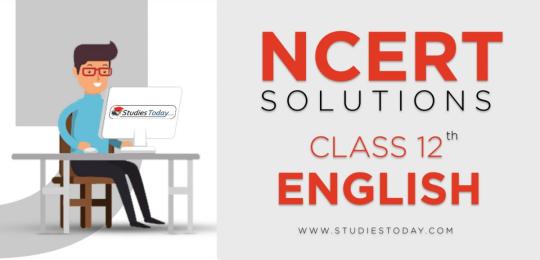
Access the comprehensive NCERT Solutions for Class 12 English across all subjects. Enhance your understanding and excel in exams with detailed explanations and step-by-step problem-solving techniques.
0 notes
Text
PERSONAL OPINION
I have wanted to say this since a very long time. This is about my feelings towards ICSE/ISC and CBSE Board. Also, I feel it is important to point out that whatever I say is solely based on my experiences.
Nobody asked for this, but my advice to all the 10th graders especially for all of you from India would be to not change your board after you pass 10th. Seriously, do not change your board, no matter what others say. Having said that, if you feel that the teaching style of the teachers in your current school do not align well with how you learn, or if you have any other serious issues, only then should you change your board.
Keep reading to find out why. I am going to share few experiences of mine so bear with me.
I think, the board as well as the school that you are in plays a major role in shaping your attitude towards learning in general. The board decides all of the examination pattern and evaluation schemes which is experienced usually during high school and maybe towards the end of middle school. The environment of the school that you are in has a huge influence on everything about you, be it your thoughts, etiquette, academics or extra- curriculars.
I attended a pre school. After that, I spent 12 years of my school life starting from Nursery in one of the best schools of my city. (IMO IT IS THE BEST SCHOOL). Now, a lot of you might be thinking that the fees were probably very high. Let me tell you, this school has the lowest fees in my town among all the English medium schools. Everything in this school is top notch. It is an ICSE/ISC affiliated school. I have had the best time there. Yeah, during exams I have had stressful times as well, but let's face it, almost every student faces it in school and university.
I am the 2020 Batch of ICSE, which is the COVID batch. 3 to 4 of our Board exams were cancelled midway due to COVID. I used to take lessons from private tutors (one for the Science and Mathematics group and the other for English) before Boards for more practice. One of these tutors was a CBSE Board teacher, who since the moment we met, always told me to change my Board to CBSE after 10th. (There are few schools, where teachers are commissioned for bringing students to those schools, which I got to know later). I was literally brainwashed into believing that if I take Science in ISC then I will not be able to crack any of the competitive entrance examinations for different colleges. When I was a child, I had set my mind into attending 11th and 12th in that school as well. But, so you see how bad the situation had had to be in my mind that I at the last minute decided to change my board all of of this tutor? I fucking hate all of those people who make students believe they cannot crack any exams, cannot do well in Olympiads or anything similar if they do Science from ISC. My school even provides all of the Science students NCERTs along with ISC books so that they can prepare for these exams.
Anyway, after 10th somehow ended during the pandemic I had to change my usual plans and get admission into a CBSE board school in my city. I did it. I took PCMB. Two weeks into attending classes I realised what a blunder I had made. I went to one of those BSF/ARMY/AIR FORCE Schools. Not exactly revealing which place since people, if they know me irl, might understand this is me. These schools are known for having the best discipline. Or, at least I was under that impression due to the answers that I had read on few social media sites. Needless to say, I found the NCERT books to not be beginner friendly at all (except English). I knew few concepts since I had previously learned about them till 10th. Even then, I found the NCERTs to be not-so-good. Especially when I compare it with books of ICSE/ISC Board.
I am a student who learns better with reading books compared to watching videos. But, in this situation I had to watch videos to understand even the most basic concepts. The teacher at this school were not good, at least not for me. I had attended classes in person too, but even then I couldn't understand what they were trying to explain, especially the Physics and Chemistry teachers. There was no proper Mathematics teacher in the School in 11th. So, you can imagine what our condition was like. Also, the CBSE Board is just so fucking disorganised. They bring major changes at the last moment without any prior indication. Lots of unnecessary projects and assignments. I had the worst mental health possible just because of this and that led me to worsen my academics.
My style of learning is very well complimented by my school (the previous school I was in) and ICSE/ISC Board. I should have known better and listened to my parents and school teachers before changing my Board. Right now, because of my own bloody fault, I am forever going to stay with my overly shitty academic record of 11th and 12th Grades.
So, if anyone is reading this post and is in a position where they do not belong to a CBSE Board School but they wish to take the competitive exams, please do not let people fool you into thinking that CBSE is the only Board where you can crack these exams, because they cannot be more wrong. Yes, few exams, especially NEET UG nowadays focusses on NCERT. So, buy NCERTs if your school doesn't provide and read them after your concepts are clear. Focus on concept clarity first. That can only happen at the place where you understand things the best.
Also, in my personal opinion and my style of learning, ICSE/ISC and IB Boards are where you should go if you really want to learn (mugging up and learning are two often confused with each other but entirely different things).
If any State Board student is reading this, I am not much aware of the situation there, but I'm sure it's really good. There are talented people there as well.
#icse#isc#cbse#neet#neet ug#jee#jee mains#jee advanced#iit jee#do not be offended since this is my opinion#desiblr
9 notes
·
View notes
Text
What are the various education boards are there in India?
India has many educational boards, some of which have been around for a very long period. Each Board has its own approaches to curriculum, instruction, and exam administration that support students' entire growth. Parents frequently struggle to choose the best education board for their kids. You can find out everything you need to know about the many Indian educational boards in this post.

Different Education Boards in India:
State Boards
Central Board of Secondary Education (CBSE)
Indian Certificate of Secondary Education (ICSE)
International Baccalaureate (IB)
International General Certificate of Secondary Education (IGCSE)
National Institute of Open Schooling (NIOS)
State Boards
Every State has its own State Boards, which adhere to its own syllabus and ranking standards. The main education boards in India each have their own educational strategies, which results in differences in the curricula from one state to the next. It places a focus on regionally relevant topics and local content that enables students to prepare for state-level engineering and medical admission exams. In comparison to numerous other boards, the syllabus is often restricted. Regional heritage and languages have a significant part in the curriculum. Recent state board directives mandated that all schools use only NCERT textbooks, which are crucial for students preparing for all-India exams.
Central Board of Secondary Education (CBSE)
One of India's most renowned and possibly most well-known education boards is the Central Board of Secondary Education (CBSE). Since it relates to establishing traditional teaching frameworks for most schools across the country, CBSE has succeeded in doing this. Numerous private and public schools across subscribe to this national level board. Exams are given by the Board to both regular and private students. Candidates who are interested in remote learning can register for admissions and apply for evaluations. After the tenth grade, CBSE offers its students a variety of courses in the humanities, sciences, and business. Students can submit applications to numerous universities for higher education after graduating from class twelve.
Indian Certificate of Secondary Education (ICSE)
In India, a private education board of administers the Indian School Certificate Examination. The purpose of this board is to offer an English-medium general education examination in compliance with the New Education Policy 1986 (India) recommendations. Candidates who plan to take the exam must complete one to three papers in each of six disciplines. Consequently, depending on the disciplines, there are eight to eleven papers in total. Results for the ICSE exam only consider the top five topics. But English marks are always required and inclusive.

IB School
With its headquarters in Geneva, Switzerland, the International Baccalaureate (IB) is a privately run global educational foundation. It offers three main programmes: a primary year programme for students in grades KG through 5, a middle year programme for students in grades 6 through 10, and a diploma programme for students in grades 11 and 12. The 144 nations where this board is offered have around 3500 schools on it. Without having to take several additional tests, the IB board assists pupils in applying to overseas universities. Students are taught analytical abilities, language, the arts, and humanities in its curricula. To prevent a fragmented approach, the disciplines are taught in this setting in an integrated manner. Typically, parents who intend to relocate overseas favour IB.
International General Certificate of Secondary Education (IGCSE)
Students can prepare for the International Baccalaureate and Cambridge Assessment International Education (CAIE) A-level through the private, internationally accepted International General Certificate of Secondary Education (IGCSE) programme. There are essentially four exam types: Cambridge Primary for students in the fifth through eleventh grades, Cambridge Secondary 1 and Cambridge Secondary 2 for students in the twelveth through sixteenth grades. It provides students with two pathways: Cambridge IGCSE and Cambridge O Level, as well as Cambridge Additional for students between the ages of 16 and 19 who need advanced study to get ready for college and higher education. Students then have the option of enrolling in Cambridge Pre-U or Cambridge International AS and A Level. The tests are administered by the University of Cambridge International Examinations, and this board has members in 120 nations.
National Institute of Open Schooling (NIOS)
The National Institute of Open Schooling (NIOS), which was founded in 1989, is a government-run open school that enables students to study online or even restart their education if there has been a lapse in their studies. This board's main objective is to improve distant communities' access to education. Open Basic Education (OBE) includes classes 3 through 8 in the primary grades. Basic math, environmental science, and computer abilities are all covered here. At least five subjects and a language must be taken from each of the two basic groupings for grade 10. In grade 12, there are additional alternatives available in the humanities, sciences, and business. Then, the students choose one or two from each of the five groups that were created.
Conclusion:
Students today in India have a variety of education boards to pick from while choosing a curriculum. It can be challenging to find the right education board in India, though. Choosing the best curriculum may be one of your many alternatives, but you also need to consider several other factors, such as the extracurricular activities that are given, the cost, and the future aspirations of your children. I recommend the Soundarya School in Bangalore, which offers both CBSE and state board education along with excellent other facilities that can assist your child develop more fully. We sincerely hope that our advice on selecting the best education board for your child helped you.
2 notes
·
View notes
Text
The @doubtmentor
is a Leading Free & Quality Education Hub
Doubt Mentor was an initiative made due to the lack of proper mentors in the field of individual caring program for students especially the weak ones.
You can Get Here Free of cost :
Live classes
Video lectures
NCERT Books,
Solutions,
Practice Questions,
Chapter wise Live Online tests
For #physics , #chemistry , #maths , #biology , #english , Hindi, of classes 6-12 & other Competitive Exams like #jee & #neet
At only Our website www.doubtmentor.in
What are u waiting for go and check it out. Link is in my bio.
@sucess.steps
@self_motivation_philosophy
@motivation_964_
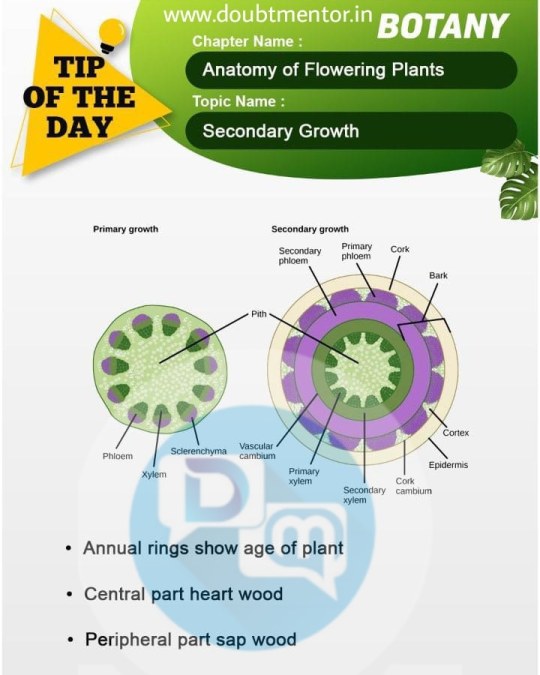
2 notes
·
View notes
Text
Cracking NTA NEET 2024: Your Ultimate Guide
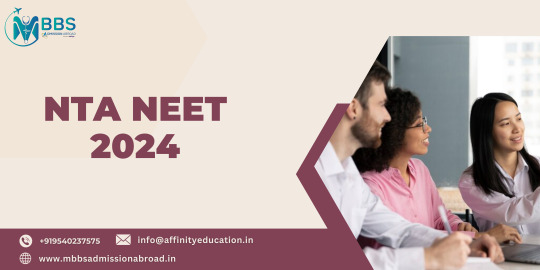
The National Eligibility cum Entrance Test (NEET) is the gateway to MBBS dreams in India. For aspiring medical professionals, NTA NEET 2024 is the crucial exam that unlocks doors to top medical colleges. This blog serves as your one-stop guide for everything NEET 2024 - from registration details to the exam syllabus and eligibility criteria.
Who Conducts NEET 2024?
The National Testing Agency (NTA) is responsible for conducting NEET 2024. Established by the Ministry of Education (MoE), NTA ensures efficient and standardized testing procedures for various entrance exams, including NEET.
NEET Registration 2024 (Not Available Yet)
The official NEET 2024 ragistration date haven't been announced yet. However, based on previous years' trends, you can expect the registration window to open sometime in November or December 2023. Keep a close eye on the official NTA website for updates.
NEET Eligibility Criteria 2024
Before diving into the syllabus, ensure you meet the eligibility criteria for NEET 2024:
Minimum Age: You must be at least 17 years old as of December 31, 2023.
Maximum Age Limit: There's no upper age limit for NEET 2024, opening doors for aspirants regardless of age.
Educational Qualification: You must have passed or be appearing for the 10+2 (or equivalent) examination with Physics, Chemistry, Biology/Biotechnology, and English as subjects.
Minimum Marks: There's a minimum marks requirement in the qualifying exam:
General Category, General-EWS, and OBC-NCL: 50% aggregate marks with a minimum of 50% in Physics, Chemistry, and Biology individually.
SC, ST, and PWD: 40% aggregate marks with a minimum of 40% in Physics, Chemistry, and Biology individually.
NEET 2024 Exam Syllabus
The National Medical Commission (NMC) prescribes the syllabus for NEET. It covers Physics, Chemistry, and Biology (Zoology and Botany) from Classes 11 and 12. Here's a subject-wise breakdown:
Physics: Measurement, Kinematics, Laws of Motion, Work, Power, Energy, Rotational Motion, Gravitation, Properties of Solids and Liquids, Fluid Mechanics, Heat and Thermodynamics, Oscillations and Waves, Electrostatics, Current Electricity, Magnetism, Electromagnetic Induction and Alternating Currents, Electromagnetic Waves, Optics, Dual Nature of Matter and Radiation, Atoms and Nuclei, Electronic Devices.
Chemistry: Basic Concepts of Chemistry, Structure of Atom, Classification of Elements and Periodicity in Properties, Chemical Bonding and Molecular Structure, States of Matter, Chemical Thermodynamics, Equilibrium, Redox Reactions, Kinetics, Chemical Equilibrium, Surface Chemistry, Classification and Nomenclature of Organic Compounds, Isolation of Elements, Principles of Inorganic Chemistry and Metallurgy, p-Block Elements, d and f Block Elements, Biomolecules, Polymers, Chemistry in Everyday Life.
Biology (Zoology): Animal Diversity, Structural Organization in Animals, Animal Physiology, Reproduction, Genetics and Evolution, Biology and Human Welfare, Ecology and Environment.
Biology (Botany): Plant Diversity, Structure and Function in Plants, Cell Biology and Plant Physiology, Reproduction in Plants, Genetics and Evolution, Biology and Human Welfare, Biotechnology and its Applications, Ecology and Environment.
Tips to Conquer the NEET 2024 Syllabus
The NEET 2024 exam syllabus is vast, so a strategic approach is essential. Here are some tips:
Start Early: Don't wait till the last minute. Begin familiarizing yourself with the syllabus as early as possible.
Focus on NCERT Textbooks: NCERT textbooks form the foundation for NEET preparation. Thoroughly understand these books.
Practice Regularly: Solve previous years' NEET papers and mock tests to identify your strengths and weaknesses.
Clear Your Doubts: Don't hesitate to seek help from teachers, mentors, or online resources for topics you find challenging.
Maintain a Balanced Schedule: Include regular breaks and maintain a healthy study-life balance for optimal focus.
Stay Motivated: Set realistic goals, track your progress, and reward yourself for milestones achieved.
Alternative Options: MBBS Abroad
If you're unable to secure a seat through NEET 2024, don't lose hope. Several reputed universities abroad offer MBBS programs for international students. Here are some factors to consider for MBBS abroad:
Eligibility: Requirements vary by university, but generally include good grades in your 10+2 exams, NEET score (in some cases), and an English language proficiency test score (TOEFL or IELTS).
University Recognition: Ensure the university is recognized by the Medical Council of India (MCI) for practicing medicine in India after completing your degree.
Course Duration and Fees: MBBS programs abroad typically last 4-6 years, with varying tuition fees depending on the university and country.
Cost of Living: Research the living expenses in the country you're considering to plan your finances effectively.
Important Considerations Before Choosing MBBS Abroad:
Language Barrier: Studying MBBS in a country with a different primary language can pose challenges. Assess your language skills and the university's support system for international students.
Cultural Differences: Adapting to a new culture can take time. Research the country's culture and customs to prepare for a smooth transition.
Limited Clinical Rotations in India: Completing your clinical rotations in India after obtaining a degree abroad might be subject to additional requirements and approvals.
Final Thoughts
NTA NEET 2024 is a competitive exam, but with dedication and the right approach, you can achieve your MBBS dream. Remember, even if you don't secure a seat through NEET, MBBS programs abroad offer a viable alternative. Carefully research universities and weigh the pros and cons before making a decision.
0 notes
Text
MBBS Admission in India
The path to becoming a doctor in India is a dream pursued by countless students every year. Known for its rigorous educational standards and esteemed institutions, the journey to securing admission to a Bachelor of Medicine, Bachelor of Surgery (MBBS) program is both challenging and rewarding. This guide offers an in-depth look at the MBBS admission process in India, providing aspiring medical students with the information they need to navigate this complex journey.
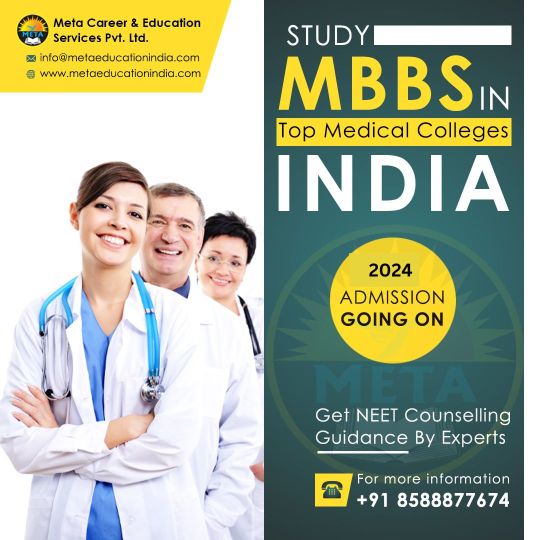
Understanding the NEET-UG Exam
The National Eligibility cum Entrance Test (NEET-UG) is the cornerstone of MBBS admissions in India. Conducted by the National Testing Agency (NTA), NEET-UG is a standardized test that evaluates candidates' knowledge in Physics, Chemistry, and Biology. Scoring well in this highly competitive exam is essential for securing a seat in an MBBS program at a government, private, or deemed medical institution across the country.
Eligibility Criteria
Before applying for NEET-UG, candidates must ensure they meet the following eligibility criteria:
Educational Qualification: Candidates must have completed their 10+2 education with Physics, Chemistry, Biology/Biotechnology, and English as core subjects.
Minimum Marks: General category students need at least 50% aggregate marks in PCB (Physics, Chemistry, Biology/Biotechnology), while reserved category students require 40%, and PwD candidates need 45%.
Age Limit: Candidates must be at least 17 years old at the time of admission. The upper age limit is 25 years for general category students and 30 years for reserved categories.
Preparing for NEET-UG
Preparation for NEET-UG requires a well-structured study plan, dedication, and consistent effort. Here are some tips for effective preparation:
Understand the Syllabus: Familiarize yourself with the NEET-UG syllabus, which covers topics from the NCERT curriculum for classes 11 and 12.
Study Material: Use high-quality study materials, including NCERT textbooks, reference books, and online resources.
Practice Regularly: Solve previous years' question papers and take mock tests to build confidence and improve time management.
Stay Healthy: Maintain a balanced lifestyle with adequate sleep, nutrition, and physical activity to ensure optimal mental and physical health during preparation.
The Admission Process
Once NEET-UG results are announced, the admission process begins. Here’s a step-by-step guide:
Registration for Counseling: Successful candidates must register for the counseling process. The Medical Counseling Committee (MCC) handles the 15% All India Quota (AIQ) seats, while respective state authorities manage the 85% State Quota seats.
Choice Filling and Locking: Candidates need to fill in their preferred colleges and courses based on their NEET-UG ranks. Choices must be locked in before the deadline.
Seat Allotment: Seats are allotted based on NEET-UG ranks, preferences, and availability. The results of the allotment are published online.
Reporting to Allotted College: Candidates who receive a seat must report to the allotted college for document verification and admission confirmation within the stipulated time.
Second Round of Counseling: If a candidate is not satisfied with the allotted seat, they can participate in subsequent rounds of counseling.
The MBBS Curriculum
Once admitted, the MBBS program spans 5.5 years, including a one-year compulsory internship. The curriculum is designed to provide comprehensive medical education, covering:
Pre-clinical Subjects: Anatomy, Physiology, Biochemistry
Para-clinical Subjects: Pathology, Pharmacology, Microbiology, Forensic Medicine
Clinical Subjects: Medicine, Surgery, Pediatrics, Obstetrics and Gynecology, Orthopedics, and others
Challenges and Rewards
The journey to becoming a doctor is rigorous and demands dedication. Students face challenges such as:
Intense academic workload
Long hours of study and clinical practice
High levels of stress and competition
However, the rewards of this journey are immense:
Gaining profound knowledge and skills
The opportunity to make a significant impact on people’s lives
A respected and fulfilling career in medicine
Conclusion
Pursuing an MBBS in India is a challenging yet rewarding journey that demands hard work, resilience, and a deep commitment to the field of medicine. By understanding the eligibility criteria, preparing diligently for NEET-UG, and navigating the admission process effectively, aspiring doctors can achieve their dream of joining the noble profession of medicine. Armed with knowledge, empathy, and a dedication to healthcare, these future doctors will play a crucial role in shaping the health and well-being of society.
0 notes
Text
Unlocking Success: The All-in-One Series by Arihant Publications for Classes 9-12
Are you a student in classes 9-12 searching for comprehensive study materials to ace your exams? Look no further than the All-in-One series by Arihant Publications. In this article, we'll explore why the All-in-One series stands out as the go-to choice for students across India, catering to their academic needs with precision and excellence.
Comprehensive Coverage for All Subjects
The All-in-One series by Arihant Publications offers a comprehensive guide for students in classes 9-12, covering all subjects, including Mathematics, Science, Social Science, English, and more. With detailed explanations, solved examples, and practice questions, these books serve as indispensable companions for students seeking to master their syllabus.
Structured Approach to Learning
Arihant's All-in-One books follow a structured approach to learning, presenting the content in a logical sequence that aligns with the curriculum. Each chapter is meticulously crafted to provide a step-by-step understanding of concepts, ensuring clarity and coherence in students' learning journey.
NCERT Guide for Class 12 and Beyond
For students in class 12, the All-in-One series serves as an invaluable NCERT guide for class 12, offering in-depth coverage of NCERT textbooks along with additional practice material and solved papers. By integrating NCERT concepts seamlessly into the All-in-One books, Arihant Publications ensures that students receive a holistic and thorough preparation for their board exams.
Get All In One Series From Here
Practice Makes Perfect: Ample Practice Questions and Sample Papers
The All-in-One series doesn't just stop at theory; it emphasizes the importance of practice in achieving academic excellence. Each book is replete with practice questions, exercises, and sample papers designed to reinforce learning and assess students' understanding of the material. By practicing extensively with the All-in-One series, students can hone their problem-solving skills and build confidence for their exams.
Expert Guidance and Support
Arihant Publications, with its rich legacy of educational excellence, brings forth the expertise of seasoned educators and subject matter experts in crafting the All-in-One series. Students benefit from the clear and concise explanations provided in these books, ensuring a thorough understanding of even the most complex topics.
Conclusion
In conclusion, the All-in-One series by Arihant Publications emerges as the ultimate choice for students in classes 9-12, offering comprehensive coverage, structured learning, and expert guidance to aid them in their academic pursuits. By integrating NCERT guide for class 12 concepts seamlessly and providing ample practice opportunities, these books equip students with the tools they need to excel in their exams. So, whether you're preparing for your board exams or aiming for academic excellence, trust the All-in-One series by Arihant Publications to be your guiding light on the path to success.
0 notes
Text
Together with CBSE Question Bank Class 12 2024 with Solved NCERT Textbook Exercises
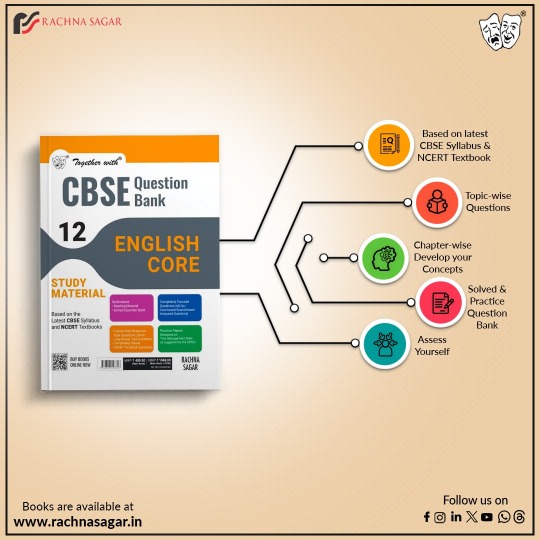
Together with CBSE Question Bank for Class 12 English Core for Session 2024-25 ensures full syllabus coverage. Best CBSE Question Bank for Class 12 comprises Chapter-wise Summary for revision. Solved Question Bank includes MCQs, Case based questions, Short/Long Answer Type, Previous Years’ Questions etc. CBSE Question Bank for Class 12 English Core includes Practice Papers curated as per CBSE Board marking scheme provides sound knowledge of exam pattern.
0 notes
Text
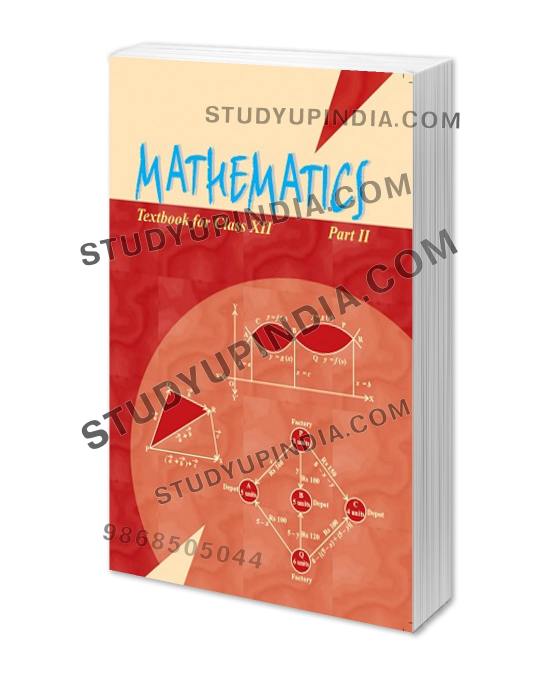
NCERT Class 12 Mathematics Part-II ( English Medium )
All books are 100℅ original on Studyupindia.com ( Online NCERT Book Store ) as per the latest NCERT syllabus.
This NCERT Class 12 History Books Contains :
Mathematics (Part 2)
Chapter 7. Integrals
Chapter 8. Application of Integrals
Chapter 9. Differential Equations
Chapter 10. Vector Algebra
Chapter 11. Three Dimensional Geometry
Chapter 12. Linear Programming
Chapter 13. Probability
As Studyupindia provides products with quick delivery, easy exchanges from trusted sellers .
0 notes
Text
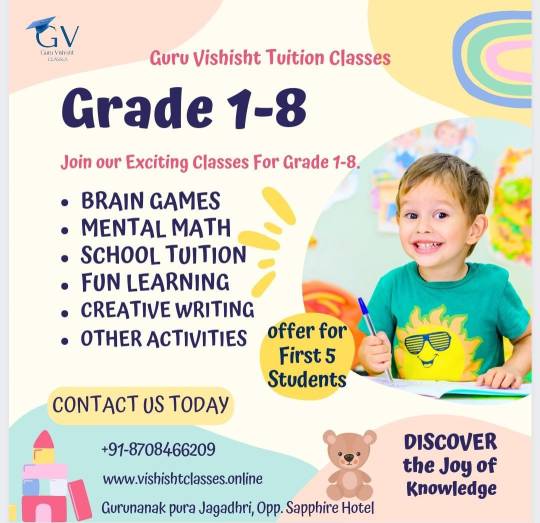



Welcome to Guru Vishisht Tuition Classes🚀 Your Path to Success Begins Here: - Dive into a world of fun learning that goes beyond textbooks. ⭐- Explore our offerings: - School Tuition from Grade 1-8 with CBSE | NCERT syllabus. -Specialized courses for kids (Grade 1-5) – Math, Spoken English, Codes, Brain Games, Story Telling, Worksheets, and more. - Excel in Grade 11-12 | B. Com | Commerce Teaching. Let’s Learn Together! Join us"
.
.
Website: www.vishishtclasses.online/
1 note
·
View note
Text
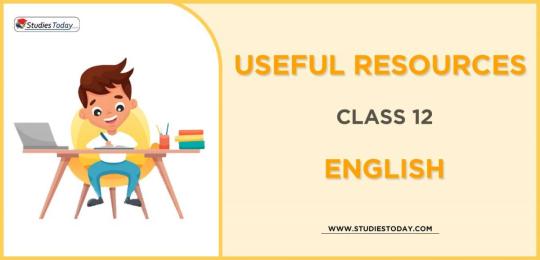
Access essential CBSE NCERT Class 12 English resources on StudiesToday. Boost your learning with curated study materials, sample papers, solutions, and more. Elevate your academic performance with comprehensive resources tailored for success. Explore now for enhanced proficiency.
0 notes
Text
Oswaal One for All Class 12 English Core for CBSE Board Exam 2024
Price: (as of – Details)
♦Strictly as per the latest CBSE Syllabus dated: March 31, 2023 Cir. No. Acad-39/2023 & Acad45/2023 ♦100 % Updated for 2023-24 with Latest Rationalised NCERT Textbooks ♦Concept Clarity with Concept wise Revision Notes, Mind Maps & Mnemonics ♦100% Exam Readiness with Previous Year’s Questions & Board Marking Scheme Answers ♦Valuable Exam Insights with 3000+ NCERT &…
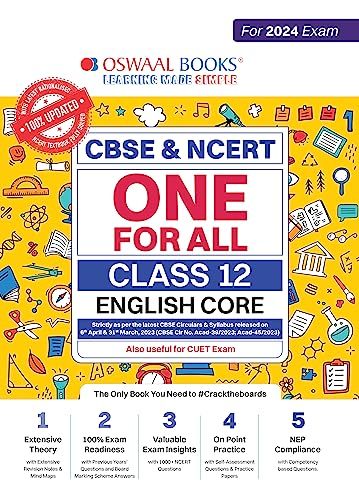
View On WordPress
0 notes
Text
Career Alert
The National UN Volunteers-India
ENTRANCE EXAM FOR ALL PRE UNIVERSITY AND 10+2 STUDENTS OF ALL STATE AND CENTRAL BOARDS TO TRY
Dr. M. Ramachandran, The National UN Volunteers-India, UN Educationist
▪️National Eligibility cum Entrance Test (NEET) (NEET) and Joint Entrance Exam- ination (JEE) are the most popular entrance examinations that only science candidates are eligible to attempt. Here are some of the exams that can be enrolled for all 10+2/XII/ PUC students of the science, humanities and commerce streams nationwide.
■ COMMON UNIVERSITY ENTRANCE TEST (CUET): The National Testing Agency (NTA) will administer the CUET (UG-24) online test between May 15 and 31, 2024. The notification is expected to be out in the first week of February 2024. The CUET scores apply for undergraduate admissions in 44 central universities, more than a 100 private universities, deemed-to-be universities and other institutions. Those who have passed Class 12 can apply.
▪️UNDER GRADUATE COMMON ENTRANCE EXAMINATION FOR DESIGN (UCEED): Ad- mission to Bachelor of Design Programmes at IIT Bombay, IIT Delhi, IIT Guwahati, IIT Hyderabad and ITT Jodhpur are facilitated through the UCEED, conducted by IIT Bombay. Many private and deemed-to-be universities are subscribing to the UCEED scores list. All students who have passed XII or have appeared in 2024 Board Examinations for the first time are eligible to appear for the UCEED 2024 test.
■ COMMON LAW ADMISSION TEST (CLAT): The CLAT is a national-level en- trance test for undergraduate Integrated Law (LLB) programmes offered by 22 National law universities in India. Several affiliated universities, including BITS Pilani Law School, use the CLAT scores to select the new intake. The 2024 CLAT is more student-friendly. There are 120 questions of 1 mark each in a multiple-choice (MCQ) pattern with negative marks (0.25%). English language and current affairs are tested, along with general knowledge, legal reasoning, logical reasoning and quantitative techniques.
■ INTEGRATED PROGRAMME IN MANAGEMENT APTITUDE TEST (IPMAT): It is a national-level admission test for integrated management programmes offered by IIM Indore, IIM Ranchi, and other famous management institutes. The registration for IPMAT-24 starts in February/March 2024. Those XII students securing above
60% are eligible for the test. It is a two-hour online test with an MCQ pattern. IIM Indore is the conducting agency of this test.
■ JOINT INTEGRATED PROGRAMME IN MANAGEMENT ADMISSION TEST (JIPMAT): The NTA has been authorised to conduct JIРМАТ 2024. This test is for admission to 5 years integrated programme in Management ment at IIM Bodh Gaya and IIM Jammu. The JIPMAT-2024 comprises MCQs in quantitative aptitude, data interpretation, logical reasoning, verbal ability and reading comprehension.
■ NATIONAL COUNCIL FOR HOTEL MANAGEMENT: Joint Entrance Examination (NCHM JEE). The National Council for Hotel Management and Catering Tech- nology is an autonomous body under the Ministry of Tourism, Government of India that conducts hospitality management ed- education in India. The Hotel Management institutes affiliated to NCHMT after BSc in hospitality and hotel administration courses, which many institutions/universities, including JNU, recognise the scores.
■ TEACHER EDUCATION COURSES: These include BA.Ed, B.Sc Ed conducted by National Council for Teacher Education. This undergraduate programme is a four- year integrated course. Regional Institute of Education (RIES) governed by NCERT, central/state universities and other institutes, including IITS, NITs and many autonomous colleges, refer to the NCTE scores for admissions.
■ NATIONAL DEFENCE ACADEMY & NAVAL ACADEMY (NDA and NA): The national defence entrance exam is conducted by UPSC in India. This entrance test is for recruiting persons in the Army, Navy and Air Force Wings of NDA. All unmarried youngsters (both genders) having XII pass certification are eligible for this test. This exam is conducted twice a year and has two stages, i.e., written and interview. NDA notification for 2024 intake is expected to be released in the second or third week of December 2023.
■ INTEGRATED BPED PROGRAMME: Many central, state, private and deemed-to-be Universities offer integrated Bachelor of Physical Education programmes. The National Sports University is offering sports coaching courses. These are all four years of integrated BPEd programmes.
Besides the tests mentioned above, many universities such as MAHE, Azim Premji, CUSAT, Chanakya, Christ and PES conduct entrance tests for diversified and new-gen- eration innovative UG programmes. Most of these higher education institutions are expected to release their admission notifications in the forthcoming days. (November 2023-March 2024)
(The author is the Principal of Coorg Public School & Pre-University College)

0 notes